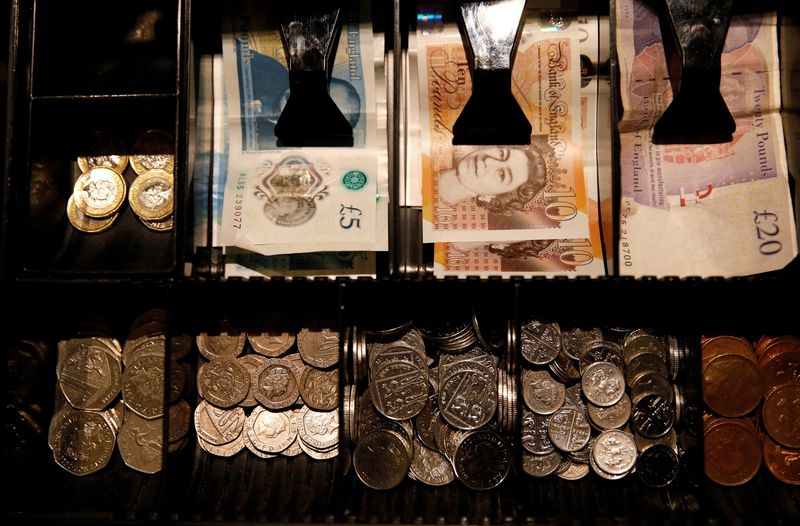By Joice Alves
LONDON (Reuters) - Sterling slipped against a strengthening U.S. dollar on Monday as global risk sentiment was dented by rising COVID-19 cases in China, which led to new restrictions in the world's second largest economy.
Risk-sensitive sterling was down 0.6% to $1.1816, on track for its biggest daily decline against the U.S. dollar in almost two weeks as China battles numerous COVID flare ups.
"Sterling has opened the week on the back foot, in line with broad risk dynamics... Broad risk negativity weighs amidst renewed Chinese lockdown fears," said Jeremy Stretch, head of G10 FX strategy at CIBC (TSX:CM).
Against the euro, which has been hit harder by China's headlines, sterling rose 0.2%, exchanging hands for 86.62 pence, after touching its highest against the weakening euro since early November.
The pound is expected to weaken further this week with public finances data due on Tuesday and flash PMI numbers on Wednesday.
"Weaker sentiment and worsening public finances suggest that the recent correction in real money sterling shorts is already fully valued," said Stretch.
Sterling was volatile last week after finance minister Jeremy Hunt announced tax rises and spending cuts in an effort to reassure markets that the government was serious about fighting inflation.
Confederation of British Industry Director-General Tony Danker said Britain should create a programme of temporary work visas to boost economic growth and also resolve a dispute with the European Union over trade rules in Northern Ireland.

The focus on Monday was also on cryptocurrencies as Bank of England Deputy Governor Jon Cunliffe said that the implosion of crypto exchange FTX showed the need to bring the crypto world within the regulatory framework.
Bitcoin was down 2.1% against sterling on the day to 13.600, after briefly falling to the lowest level since December 2020. It has shed almost 24% in November, bringing annual declines against the pound to 60%.